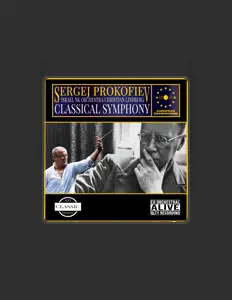
Classical
Italy
Gioachino Rossini
Top de canções de Gioachino Rossini
Mais álbuns de Gioachino Rossini
Sobre Gioachino Rossini

Terra natal
Pesaro, Italy
Data de nascimento
1792
Género
Classical
Rossini’s rise to international stardom was startlingly quick. Born in Pesaro, Italy, in 1792, son of a village trumpeter and singer, he was initially apprenticed to a blacksmith, but at 14 his burgeoning talent won him a place at the Bologna Academy. He was only 18 when he received his first operatic commission, and in 1813 his operas Tancrediand the comic L’Italiana in Algeri (The Italian Girl in Algeria) established his reputation firmly outside Italy. The following years saw a torrent of operatic production, including such enduringly popular masterpieces as The Barber of Seville (1816), La Cenerentola (Cinderella, 1816), and La gazza ladra (The Thieving Magpie, 1817). What should have been the climax of his career followed in 1825 when he was appointed composer to Charles X of France, and his most ambitious opera, William Tell (1829), was a huge success in Paris. But the revolution of 1830 and the dethronement of the French King forced Rossini to return to Italy in 1836. There he fell into a profound depression, and during the following two decades the only major work he produced was his choral Stabat Mater (1841). In his seventies, however, Rossini began to compose again, creating what he called his “sins of old age,” including the impressive Petite messe solonelle (1863). He died in Paris in 1868, widely celebrated as a comedic genius. With time, however, Rossini’s serious operatic and particularly his religious work has also come to be seen as having major significance.
Semelhante a: Gioachino Rossini
Descobre mais músicas e artistas semelhantes a Gioachino Rossini, como Alexandr Borodin, Christian Lindberg, Antonio Carlos Gomes

















































































![Ouve Sommernachtskonzert 2022 / Summer Night Concert 2022 [Live - Visual Album] de Andris Nelsons, Vienna Philharmonic & Gautier Capuçon Ouve Sommernachtskonzert 2022 / Summer Night Concert 2022 [Live - Visual Album] de Andris Nelsons, Vienna Philharmonic & Gautier Capuçon](https://is1-ssl.mzstatic.com/image/thumb/Music112/v4/b8/54/a3/b854a3dd-2c34-a2ba-49c7-e2e35eab9825/196589204189.jpg/276x276bb.webp)






































